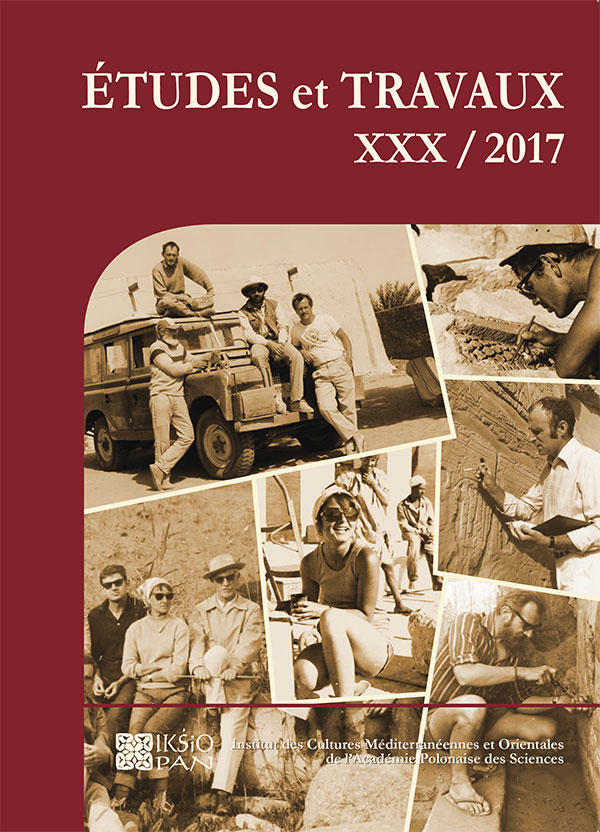New Discoveries at Tell el-Farkha and the Beginnings of the Egyptian State
DOI :
https://doi.org/10.12775/EtudTrav.30.011Mots-clés
Lower Egyptian culture, Naqada culture, Protodynastic Egypt, Early Dynastic Egypt, Tell el-FarkhaRésumé
Tell el-Farkha was an important centre already in Predynastic times, when a great Lower Egyptian culture complex was erected on the Central Kom. Items found inside confirmed both the significant role played by the local elite and its relationship with the Levant and Upper Egypt. The first large Naqadian building was erected outside the town centre. This building and the whole settlement were destroyed (Naqada IIIA1) by the next group of Naqadians, probably connected with another political centre. They were the constructors of the oldest Egyptian mastaba. During the reign of Iry-Hor (middle of Naqada IIIB), the third group of Naqadians appeared at the site. The period between Naqada IIIA and middle of IIIB phase seems to have been a period of competition between the most influential Naqadian proto-kingdoms. In the middle of the First Dynasty, Tell el-Farkha changed its role: from the capital of a part of the Eastern Delta to a provincial town of only economic significance.
Téléchargements
Publiée
Comment citer
Numéro
Rubrique
Stats
Number of views and downloads: 852
Number of citations: 7



